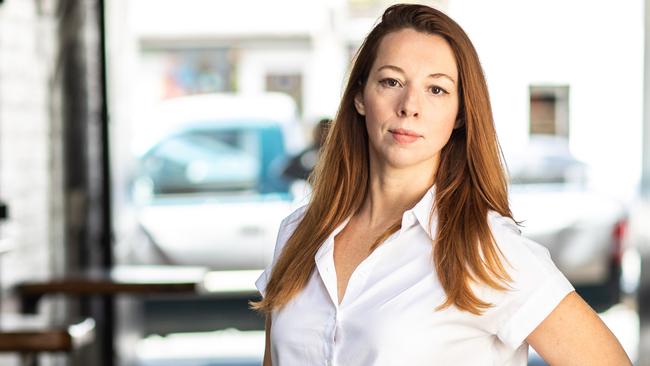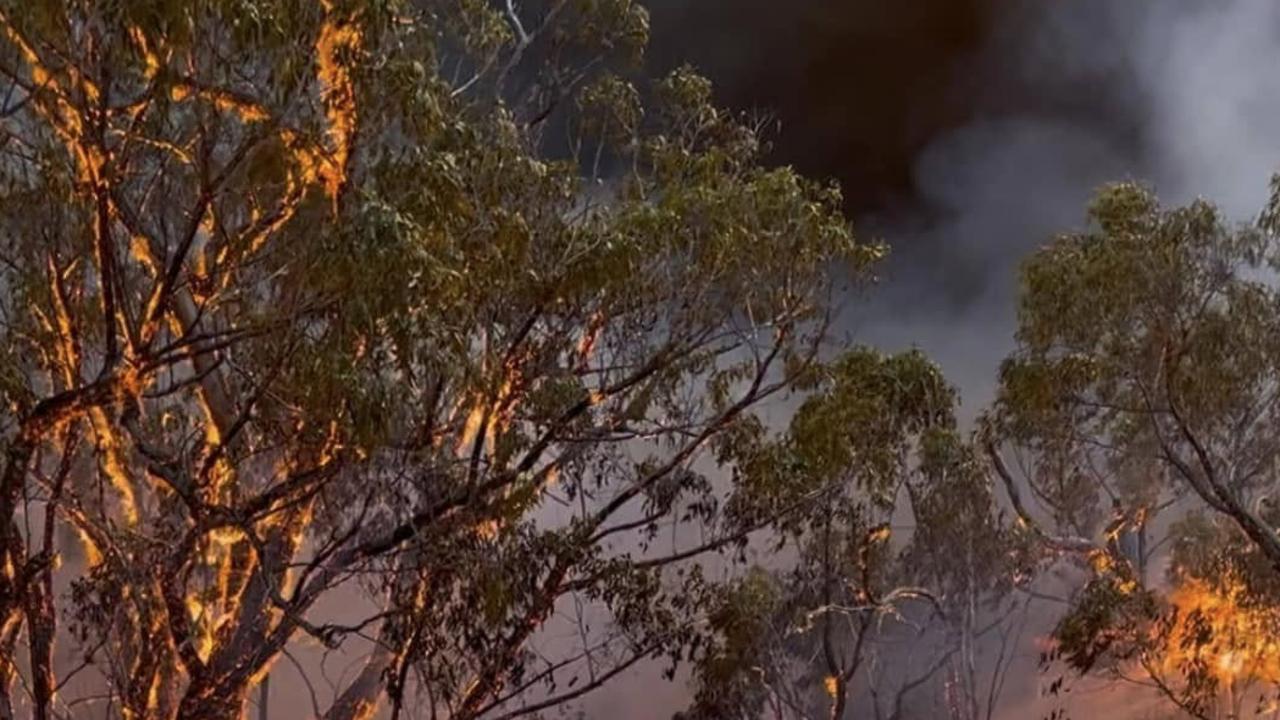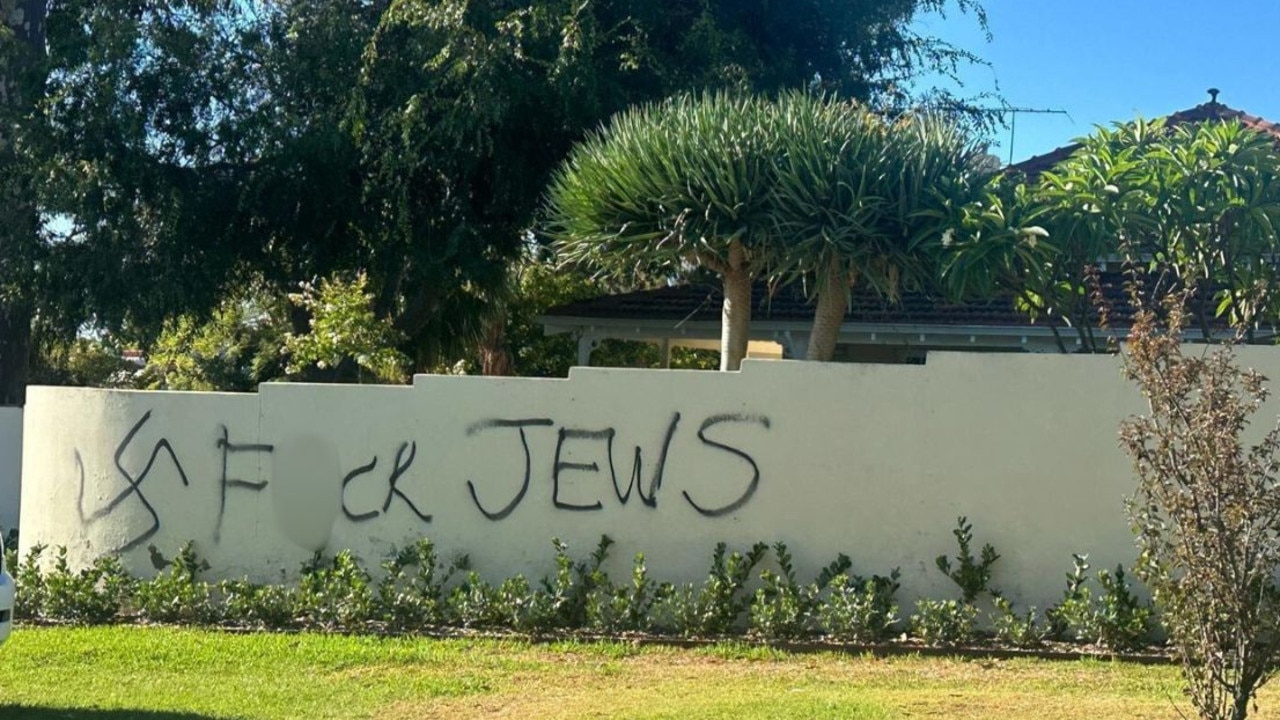Criticism of trans policy brings its dangers
The must-have accessory for a feminist who speaks her mind? A bodyguard, as Meghan Murphy found out.

UPDATED | The must-have accessory for the feminist who speaks her own mind: a bodyguard.
In Canada, famous for niceness, feminist Meghan Murphy is a woman whose words are weapons — or such is the cry from activists for transgender rights who see nothing odd about using threats of violence to try to silence her.
READ MORE: EXCLUSIVE EXTRACT — Inventing Transgender Children and Young People | The balls now in feminists’ court | The sex talk we have to have
Murphy has no quarrel with trans people having rights or freedoms. “Really, it’s about public policy and legislation,” she says.
“It’s one thing to live your life the way you want, it’s another thing if you’re going to start forcing people to say you’re literally female when you’re male and that means you should be allowed to enter women’s and girls’ spaces (such as toilets, change rooms, shelters, refuges or prisons).”
For insisting on public debate about the real-life risks of a big official tick for self-declared gender change, Murphy has copped a Twitter ban (for “hateful” pronoun crime) and last month Massey University in New Zealand became the latest institution of higher learning to cancel her speaking event, citing “health, safety and wellbeing obligations”; she shifted venues.
“It’s a terrible precedent to say that if you threaten violence, then you’ll get your way,’’ she says.
“The university should be demanding that students do engage (with competing viewpoints). “This happens in Canada too — a lot of the people who opposed my talk (on campus) and were trying to get it shut down were the professors.
“And professors are supposed to be role-modelling for students, and encouraging students to challenge their perspectives, to engage in critical thought and critical debate — instead they’re doing the total opposite.”
Like other “gender-critical” feminists wearily familiar with harassment, death threats and being miscast as merchants of hate speech, she is still gobsmacked by how upside down the world of trans identity politics has become.
“Hate speech is a specific thing; it’s inciting violence or genocide against a group of people — I’ve never done that,” Murphy says.
“They say that what I’m saying is bigotry, and I find it really strange that they don’t understand that free speech is a really valuable and important foundational concept in any democracy, in any free society.
“It seems a lot of people just don’t value free speech. In progressive circles they seem to think they can determine which speech is acceptable.’’
Murphy’s no rightwinger, and as a graduate and journalist, she’s dismayed to witness mainstream media outlets and universities not challenging evidence-free campaigns to shut down debate.
But something hopeful happened last month in Toronto. City librarian Vickery Bowles stood firm against massive pressure, refusing to cancel Murphy’s speaking event, just as she would honour a booking made by a trans group.
“We are a democratic institution and we are standing up for free speech,” Ms Bowles said on Canada’s public broadcaster, with the presenter objecting, “sometimes what we call free speech is hurtful speech”.
But Murphy is the one exposed to risk of being hurt when she is smeared as “hateful” and has to run the gauntlet of mobs.
“I’m certainly intimidated by these men (angry activists who self-identify as women) and that’s why I won’t do any events without bodyguards,’’ she says.
Outrage machine
In Britain, Heather Brunskell-Evans is a precisely-spoken retired academic who thought it unremarkable to say on BBC Radio 4 she did not believe children were born transgender and an ethical society would recognise that what kids wanted at one stage of psychological development might not be what they wanted as adults.
Months of abuse and harassment ensued. At a community centre in Bristol where she was invited to speak about transgender children, police had failed to clear the way for her to enter by the front door, and she found herself at a back entrance — with more angry trans activists and no police.
“I was physically manoeuvred backwards down a very tight staircase by male-bodied people who wore masks and balaclavas and called themselves women,” Brunskell-Evans says.
“I’m 5’ 2” (157cm), and these were really big men, and they were screaming at me that I was a Nazi.
“It was a surreal experience — I thought, I’m actually going to fall backwards down here and break my neck.”
She’s not sure how, but at length her entry was negotiated.
“When I was giving my talk, (the activists) banged on the door constantly through the whole thing, I could hardly speak, and I gave my talk shaking.”
Only now, two years later, is the outrage machine winding down, a little.
Brunskell-Evans suspects the activists — not all of them trans, and there are trans adults appalled by the tactics — are starting to appreciate it’s counterproductive.
“I think they have realised with me that I will remain steadfast, I will stick with the truth, and in the eyes of the public, they slightly diminish themselves by protesting at my events.”
She and co-editor Michele Moore have had a victory for freedom of expression. After lawyers’ letters and delays, their book, Inventing Transgender Children and Young People, has just been published.
Feminist underground
Australia has to wait until next year for a possible speaking tour by Murphy.
Sydney University political scientist Bronwyn Winter, a well-known gender-critical feminist, says she has had to organise local talks and discussions “in a clandestine way” with a video released afterwards.
She says those speaking up for the welfare and protection of women and girls against the risks of purely self-identified trans status endure enough abuse and deaths threats on social media.
“I don’t want to have bodyguards accompanying me to speak in public, I don’t want that in my life,” Winter says.
She has been “deplatformed” — had a speaking opportunity taken away — by some student groups unhappy with her gender-critical views.
When it comes to meetings with women, Winter “flies under the radar”, rather than going public, which would attract hostile demonstrations and require police and private security.
“I feel like I’m part of the feminist resistance, forced underground — it’s that, or deal with confrontation and the risk of physical harm.”
The Australian asked Human Rights Commission president Rosalind Croucher, Sex Discrimination Commissioner Kate Jenkins, and Anna Brown of the LGBTIQ+ group Equality Australia if gender-critical feminists were entitled to put their views without abuse, threats and claims they were “hateful transphobes”.
The commission issued a short statement, saying it supported “freedom of speech for everyone in Australia, provided that speech does not vilify or incite hatred of a person or group of people”.
The commission did not reply when asked if it agreed with trans activists that it was hate speech to define a woman by her sex, and to warn of self-identified trans status — officially endorsed without robust public debate — as a potential threat to the rights and protections of women.
Identity attack
Ms Brown did not reply to The Australian’s request for comment.
In August, Equality Australia circulated an activist petition calling on Melbourne University to cancel a “transphobic and queerphobic” speaking event on campus — “The future of sex-based rights”, with speakers including lesbian feminist philosopher Holly Lawford-Smith. The petition claimed this talk would put trans students and staff “at risk” and was likely to “attack” their identities. The event went ahead.
A national coalition of women’s and lesbian groups wrote to Ms Brown earlier this month calling on her to speak up “in support of civil and full debate on these critical issues (arising from self-identified trans claims) concerning equality for lesbians and all women”.
The letter says women defending “sex-based rights” are being “routinely no-platformed, vilified, sexually harassed, threatened or bullied into silence.
“Equality Australia has been conspicuously silent over trans rights activists’ demonisation of lesbians’ and women’s rights groups.”
In her reply Ms Brown says her organisation “stands against the vilification, harassment, threatening or bullying of all women, including lesbian, bisexual, queer and trans women,
and women with variations in sex characteristics.
“We do not believe that equality for trans, gender diverse and non-binary people lessens the rights of cisgender (biological) women, just like equality for lesbians, bisexual and queer women does not lessen the rights of heterosexual women.”
In the UK, the main LGBT organisation, Stonewall, has also embraced self-identifed trans status based on “gender identity” and queer theory.
This has led a group of disaffected lesbians, bisexuals and gay men to set up a new group, the LGB Alliance, with the slogan — “Homosexuality is same-sex attraction. Biological sex is real. Sex is binary, not a spectrum. Gender is a social construct.”



